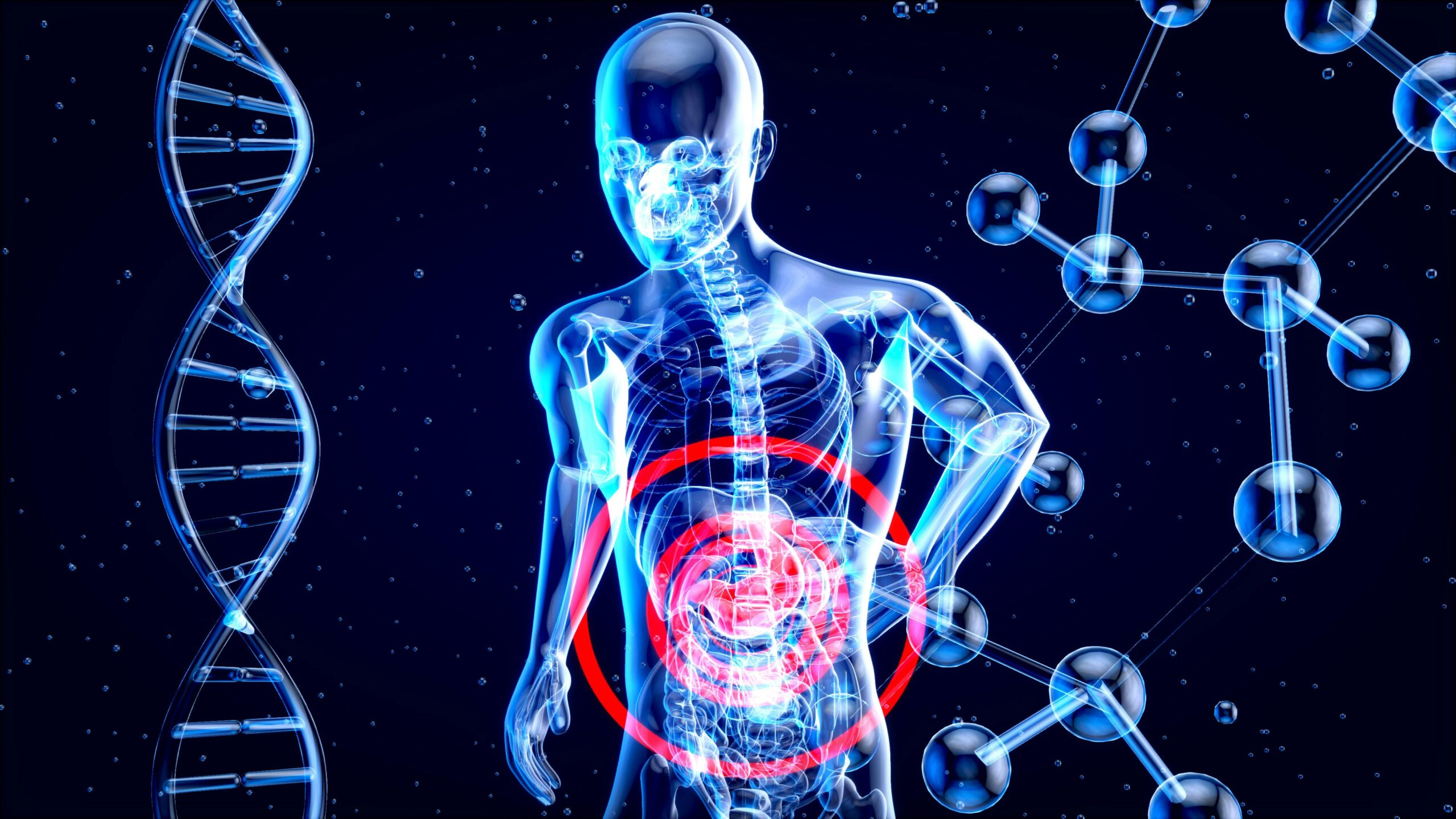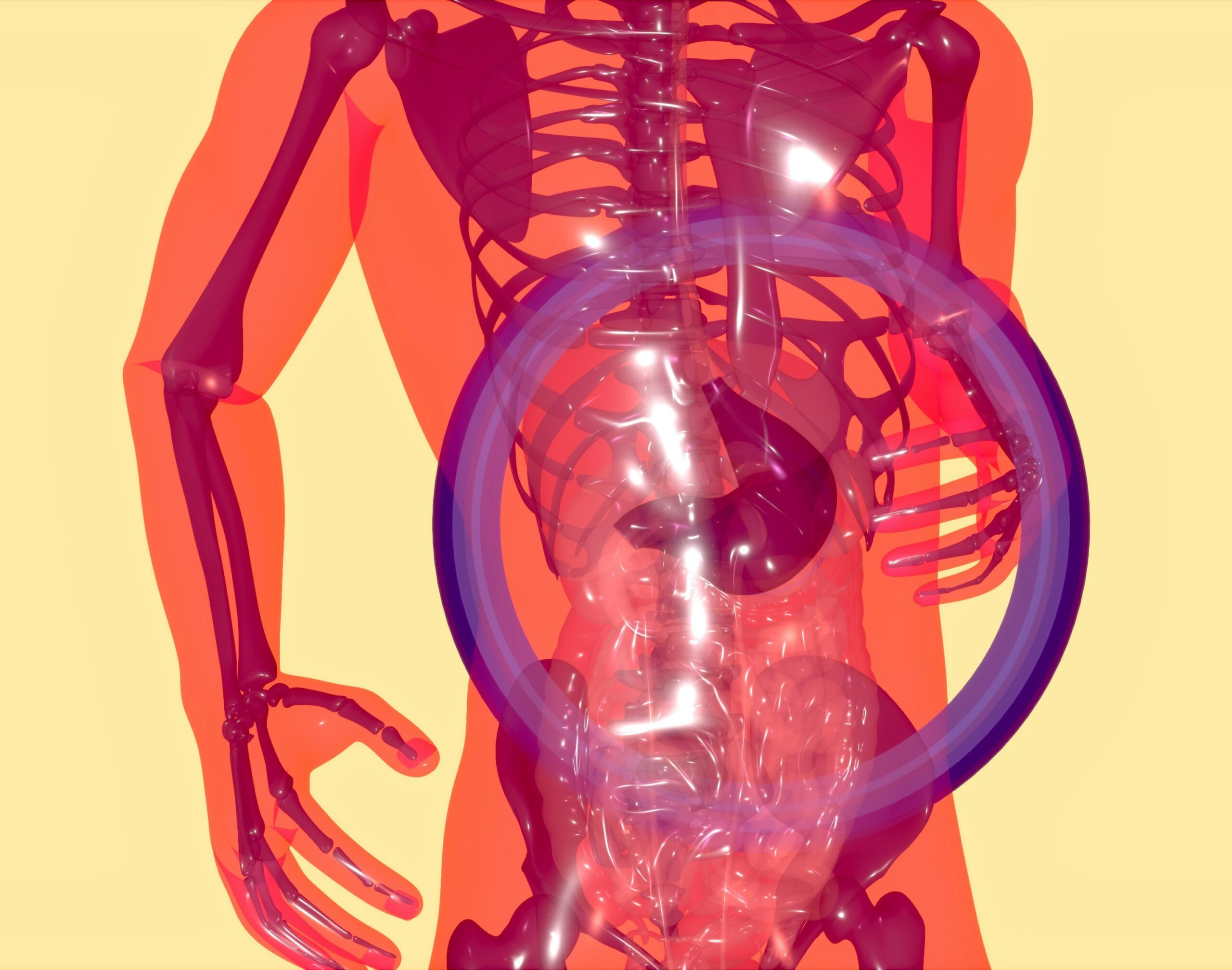Zollinger-Ellison Syndrome is a term used to describe a group of symptoms associated with several conditions. ZES includes gastroesophageal reflux disease, severe peptic ulcer disease, and chronic diarrhea resulting from a tumor.
The tumor produces gastrin, contributing to the persistent symptoms associated with the gastrointestinal tract. Zollinger-Ellison Syndrome is rare, and the dynamics of disease progression vary. ZES can affect a patient's quality of life, but the symptoms are mild in some cases.

However, Zollinger-Ellison Syndrome is a disease that needs to be correctly diagnosed and treated, as untreated, it increases the risk of mortality. The performance of special medical tests is essential for correctly diagnosing ZES. The cornerstone of treatment is control of gastrin production and surgical resection of the tumor to prevent malignant transformation and metastatic complications. In advanced metastatic disease, oncological treatment is used.
Zollinger-Ellison Syndrome is a sporadic disease that can be cancerous. The syndrome is classified as an endocrinopathy![]() , a group associated with endocrine disorders. ZES is a group of symptoms caused by the action of tumors. Tumors can be located in various organs, most commonly in the duodenum
, a group associated with endocrine disorders. ZES is a group of symptoms caused by the action of tumors. Tumors can be located in various organs, most commonly in the duodenum![]() or pancreas
or pancreas![]() .
.
The tumor secretes gastrin![]() , a substance that is, among other things, a stimulator of hydrochloric acid secretion. Gastrin stimulates the secretion of water and ions into the pancreatic juice and the secretion of bile, which is necessary for the proper digestion of fats. Excess gastrin levels are detrimental to the body, increasing the stimulation of gastric cells to secrete acid.
, a substance that is, among other things, a stimulator of hydrochloric acid secretion. Gastrin stimulates the secretion of water and ions into the pancreatic juice and the secretion of bile, which is necessary for the proper digestion of fats. Excess gastrin levels are detrimental to the body, increasing the stimulation of gastric cells to secrete acid.
Excess gastrin secretion in the gastrointestinal tract leads to constant hyperacidity![]() of gastric juice, which is the cause of damage to the gastric mucosa and ulcer formation. Ulcers in Zollinger-Ellison Syndrome are numerous, refractory, and tend to recur. Peptic ulcers occur in the distal part of the duodenum and the proximal part of the jejunum. Excessive and uncontrolled gastrin secretion occurs in several diseases. In Zollinger-Ellison Syndrome, gastrin levels significantly increase, which is caused by the uncontrolled production of the substance by the tumor.
of gastric juice, which is the cause of damage to the gastric mucosa and ulcer formation. Ulcers in Zollinger-Ellison Syndrome are numerous, refractory, and tend to recur. Peptic ulcers occur in the distal part of the duodenum and the proximal part of the jejunum. Excessive and uncontrolled gastrin secretion occurs in several diseases. In Zollinger-Ellison Syndrome, gastrin levels significantly increase, which is caused by the uncontrolled production of the substance by the tumor.

Some studies suggest that tumors may cause excessive gastric acid secretion due to hypercalcemia![]() . Hypercalcaemia is an undue concentration of calcium in the blood and is most often the result of hyperparathyroidism and tumors. Calcium is essential for the body, as many vital functions depend on the correct amount and concentration of calcium. An excess of calcium, therefore, significantly disrupts the body's balance.
. Hypercalcaemia is an undue concentration of calcium in the blood and is most often the result of hyperparathyroidism and tumors. Calcium is essential for the body, as many vital functions depend on the correct amount and concentration of calcium. An excess of calcium, therefore, significantly disrupts the body's balance.
ZES may have a genetic basis, as some patients have been observed to have endocrine adenoma syndrome type 1, abbreviated MEN![]() . This is a genetically determined tendency to form nodular lesions in the parathyroid glands, pancreatic islet cells, and the anterior lobe of the pituitary gland.
. This is a genetically determined tendency to form nodular lesions in the parathyroid glands, pancreatic islet cells, and the anterior lobe of the pituitary gland.
Zollinger-Ellison syndrome can present many symptoms because it combines several conditions associated with excessive gastrin secretion. First of all, ulcers are present and may be accompanied by gastroesophageal reflux disease (GERD) and chronic diarrhea. Gastrinoma, or neuroendocrine tumor, secretes gastric acid, which is the cause of all gastric symptoms. Symptoms of Zollinger-Ellison Syndrome include:

Abdominal pain is caused by peptic ulcer disease, which is persistent and resistant to treatment. Therefore, when treatment of patient-reported peptic ulcer disease does not work for a prolonged period, Zollinger-Ellison Syndrome is suspected. The pain may be in the upper abdomen, usually during meals. In the case of a duodenal ulcer, the pain occurs on an empty stomach and manifests at night, upon waking, or several hours after a meal. The pain may also decrease in intensity after taking antacids.
Diarrhea is another symptom associated with excessive gastrin secretion. It is caused by excessive hydrochloric acid secretion and reduced sodium and water absorption due to hypergastrinemia. Diarrhea can be fatty and is associated with impaired digestion through inactivation of pancreatic enzymes. Hydrochloric acid also contributes to impaired fat emulsification and damage to the intestinal epithelium.
Heartburn is a burning sensation in the location of the hypopharynx behind the sternum. As Zollinger-Ellison Syndrome also includes GERD, heartburn may also be present. The diagnosis of reflux in patients with ZES is that irritation of the esophagus is caused by exposure of the esophagus to excessively produced gastric acid.
Malabsorption![]() leads to excessive secretion of hydrochloric acid, which results in weight loss in patients with ZES. Diarrhea also contributes to weight loss, especially if it is chronic. In some cases of Zollinger-Ellison Syndrome, chronic diarrhea can occur, lasting up to several months. Consequently, weight loss may occur but is not observed in all patients with Zollinger-Ellison Syndrome.
leads to excessive secretion of hydrochloric acid, which results in weight loss in patients with ZES. Diarrhea also contributes to weight loss, especially if it is chronic. In some cases of Zollinger-Ellison Syndrome, chronic diarrhea can occur, lasting up to several months. Consequently, weight loss may occur but is not observed in all patients with Zollinger-Ellison Syndrome.

In some cases, gastrointestinal bleeding or perforation may occur. Gastrointestinal bleeding is usually the initial symptom. The patient may notice bleeding when there are tarry stools or blood-colored vomiting. An admixture of blood may also be observed in the stool, indicating gastrointestinal bleeding.
Hyperparathyroidism is an endocrine entity that is caused by the excessive production of parathormone. The hormone is produced and secreted by the parathyroid glands, which are endocrine system glands located in the parenchyma of the thyroid gland.
Hyperparathyroidism is a symptom that only occurs in people with Zollinger-Ellison Syndrome, which is accompanied by the genetic disease MEN1![]() . Multiple endocrine neoplasia type 1 is strongly suspected in people who have primary hyperparathyroidism. It is hyperparathyroidism with MEN1 that causes hypercalcemia, which can exacerbate symptoms. In addition to hyperparathyroidism, nephrolithiasis is also seen in patients with MEN1, although it is less common.
. Multiple endocrine neoplasia type 1 is strongly suspected in people who have primary hyperparathyroidism. It is hyperparathyroidism with MEN1 that causes hypercalcemia, which can exacerbate symptoms. In addition to hyperparathyroidism, nephrolithiasis is also seen in patients with MEN1, although it is less common.

Zollinger-Ellison syndrome is a rare disease, and peptic ulcers and diarrhea are much more common in other diseases. Suspicion of ZES requires the patient to be referred for additional investigations. The diagnosis is established based on the characteristic clinical picture, typical abnormalities on ancillary investigations, and tumor localization on imaging studies.
The essential first step in the diagnosis of ZES is the measurement of serum gastrin levels. Patients with a gastrinoma tumor will have high gastrin levels that exceed 100 pg/ml![]() . The gastrin test can be performed with secretin. Specialists also test for increased gastric secretion of hydrochloric acid and increased serum chromogranin A levels. The diagnosis of Zollinger-Ellison Syndrome also predisposes to MEN1 screening. Serum calcium, parathormone prolactin, and pancreatic polypeptide levels are performed to confirm the genetic origin.
. The gastrin test can be performed with secretin. Specialists also test for increased gastric secretion of hydrochloric acid and increased serum chromogranin A levels. The diagnosis of Zollinger-Ellison Syndrome also predisposes to MEN1 screening. Serum calcium, parathormone prolactin, and pancreatic polypeptide levels are performed to confirm the genetic origin.
Imaging studies in diagnosing ZES are used to localize the tumor and possible metastases. For this purpose, non-invasive tests such as CT or MRI are performed. Imaging methods also help to localize the tumor before surgery. In some cases, scintigraphy is used as it is more sensitive and efficiently detect tumors outside the liver area.
Positron emission tomography, on the other hand, is used to assess metastases of Zollinger-Ellison Syndrome. Other methods that belong to the invasive ones are endoscopic ultrasonography and oesophagogastroduodenoscopy (EGD). These are performed to evaluate organs and tumors in more detail.

In the process of diagnosing ZES, differential diagnosis is also essential, i.e., taking into account other conditions that may give similar symptoms to Zollinger-Ellison Syndrome. The doctor may suspect various conditions. Prominent among these is Helicobacter pylori![]() infection. Both Zollinger-Ellison Syndrome and Helicobacter pylori infection are major aetiological factors in peptic ulcer disease, so a test for this type of bacteria is also essential in the diagnosis.
infection. Both Zollinger-Ellison Syndrome and Helicobacter pylori infection are major aetiological factors in peptic ulcer disease, so a test for this type of bacteria is also essential in the diagnosis.
Also, the use of NSAIDs![]() may contribute to ulcers and other gastric symptoms, mainly if the drugs are used for a long time. In addition, gastric outlet obstruction, short bowel syndrome, and autoimmune gastritis may be suspected. These diseases can cause uncharacteristic symptoms that are also present in ZES, so doctors should consider them during the diagnosis process. Performing tests and locating the tumor confirms the presence of Zollinger-Ellison Syndrome.
may contribute to ulcers and other gastric symptoms, mainly if the drugs are used for a long time. In addition, gastric outlet obstruction, short bowel syndrome, and autoimmune gastritis may be suspected. These diseases can cause uncharacteristic symptoms that are also present in ZES, so doctors should consider them during the diagnosis process. Performing tests and locating the tumor confirms the presence of Zollinger-Ellison Syndrome.
The treatment of ZES aims to heal the peptic ulcer and remove the gastrin-secreting tumor, if possible. Doctors aim to rid patients of ulcers to obtain the possibility of radical tumor removal. The presence of metastases makes treatment much more complex and worsens the prognosis of patients.
Medical therapy with proton pump inhibitors![]() virtually eliminates the need for surgery. PPIs are used in doses that reduce hydrochloric acid secretion. The omeprazole and pantoprazole are used. Proton pump inhibitors are currently highly effective antisecretory drugs. PPIs interfere with both basal and stimulated gastric acid secretion. Patients well tolerate the drugs and have few long-term side effects, even with high doses or chronic use.
virtually eliminates the need for surgery. PPIs are used in doses that reduce hydrochloric acid secretion. The omeprazole and pantoprazole are used. Proton pump inhibitors are currently highly effective antisecretory drugs. PPIs interfere with both basal and stimulated gastric acid secretion. Patients well tolerate the drugs and have few long-term side effects, even with high doses or chronic use.

Before the discovery of the efficacy of proton pump inhibitors, surgery was the mainstay of treatment for ZES. Today, surgery is used in severe cases of the disease. Resection of the primary tumor is then required, resulting in better control of symptoms and normalization of abnormal gastrin levels. The tumor is surgically removed if it is more significant than 2 cm in size.
Surgical resection is also used in patients with a tendency for the tumor to metastasize to the liver, lymph nodes, and distant organs. Thus, the role of surgical treatment for Zollinger-Ellison Syndrome is to eliminate the primary tumor and prevent metastatic spread. The surgical approach may differ for sporadic ZES and MEN1-related syndromes.
Patients with advanced disease must undergo professional treatment, including chemotherapy. Chemotherapy is used in severe stages of the disease and the presence of metastases. Oncolytic treatment includes radioisotope therapy and molecularly targeted therapies. Chemotherapy is also used in cases where the disease has already metastasized and the patient is not eligible for surgery.
Excessive hydrochloric acid secretion can lead to complications if untreated. Complications can also occur during invasive treatments. Complications of Zollinger-Ellison Syndrome include:
Complications of ZES are mainly bleeding and perforation of the gastrointestinal tract. Perforation can involve the esophagus, stomach, and duodenum. Gastrointestinal perforation occurs when all layers of the organ wall are damaged. This situation leads to a fusion of the lumen of the organ, i.e., the esophagus, stomach, or duodenum, with the surrounding space.
Perforation is an imminently life-threatening condition that requires the doctor to make an accurate diagnosis and intervene quickly. Gastrointestinal perforation can be recognized by sudden, severe abdominal pain, tachycardia, and shallow breathing.

Dangerous complications can also occur during the surgical treatment of Zollinger-Ellison Syndrome. During the removal of gastrinomas or other tumors from MEN1, problems can occur that can even lead to the death of the patient. Extensive surgical resections are fraught with complications, mainly if recurrence occurs. When local tumor recurrence occurs, reoperation is much more complex and risky.
The prognosis for ZES is good, especially if the disease is diagnosed early, before metastasis. Long-term survival also occurs in patients with no comorbidities![]() . In cases with additional diseases, cardiovascular disease and cancer were the leading causes of death. Patients with malignancies also have a poorer prognosis. Liver metastases were the main prognostic factor impairing prognosis.
. In cases with additional diseases, cardiovascular disease and cancer were the leading causes of death. Patients with malignancies also have a poorer prognosis. Liver metastases were the main prognostic factor impairing prognosis.
Zollinger-Ellison Syndrome is a rare disease with persistent, recurrent peptic ulcers and GERD. In addition, symptoms include diarrhea, which can be chronic. The cause of ZES is a cancerous tumor that produces gastrin, which increases the production of hydrochloric acid in the stomach. The dynamics of the development of the disease vary. Currently, effective pharmacological treatment is used in most cases. However, there are still some cases of ZES that predispose to surgery. The prognosis is good in the absence of comorbidities and metastases.